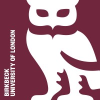Senior Research Associate - 0516-24
Reference:
0516-24We are looking for a highly motivated and creative individual to join us as a post-doctoral researcher within the group of Dr Richard Mort in the Division of Biomedical and Life Sciences at Lancaster University, to investigate the cellular and genetic basis of the spotting patterns observed in the Dalmatian dog.
Our groups are interested in development, tissue homeostasis and disease with a focus on skin and the melanocyte lineage. We use live imaging of cells and tissues and biosensors of cellular processes such as cell cycle progression combined with mathematical modelling and bioinformatic approaches (e.g. Riddell et al PLOS Biology, 2023, Wilkinson et al PCMR 2022, Mort et al Nature Comms 2016). This Leverhulme-trust funded position is part of a collaboration between the Mort and Shih groups at Lancaster University and Dr. Kit Yates at The University of Bath. In this project, we will investigate the genetic and cellular basis for the iconic spotting pattern of the Dalmatian dog using clonal analysis in mice, advanced imaging and sequencing approaches and mathematical modelling.
You should have a PhD in a relevant field (or be close to completion), a background in cell culture and molecular/cell biology techniques, and an interest in developmental patterning. Experience in gene targeting, live imaging, transcriptomics and bioinformatic analysis would be an advantage. We are looking for a highly motivated individual with excellent communication skills, the capacity to work collaboratively in a team and the ability to solve problems creatively.
This is a fixed term position for a period of 44 months.
The Division of Biomedical and Life Sciences, within the Faculty of Health and Medicine at Lancaster University, is a rapidly growing Division whose research effort is directed towards understanding basic cellular and physiological mechanisms that underpin disease states. It provides a friendly research environment that strongly supports the individual needs of each employee and which actively promotes a healthy work-life balance. The Faculty is committed to family-friendly and flexible working policies and has held a Silver Athena SWAN award since 2014 in recognition of its good employment practice undertaken to address gender equality in higher education and research.












